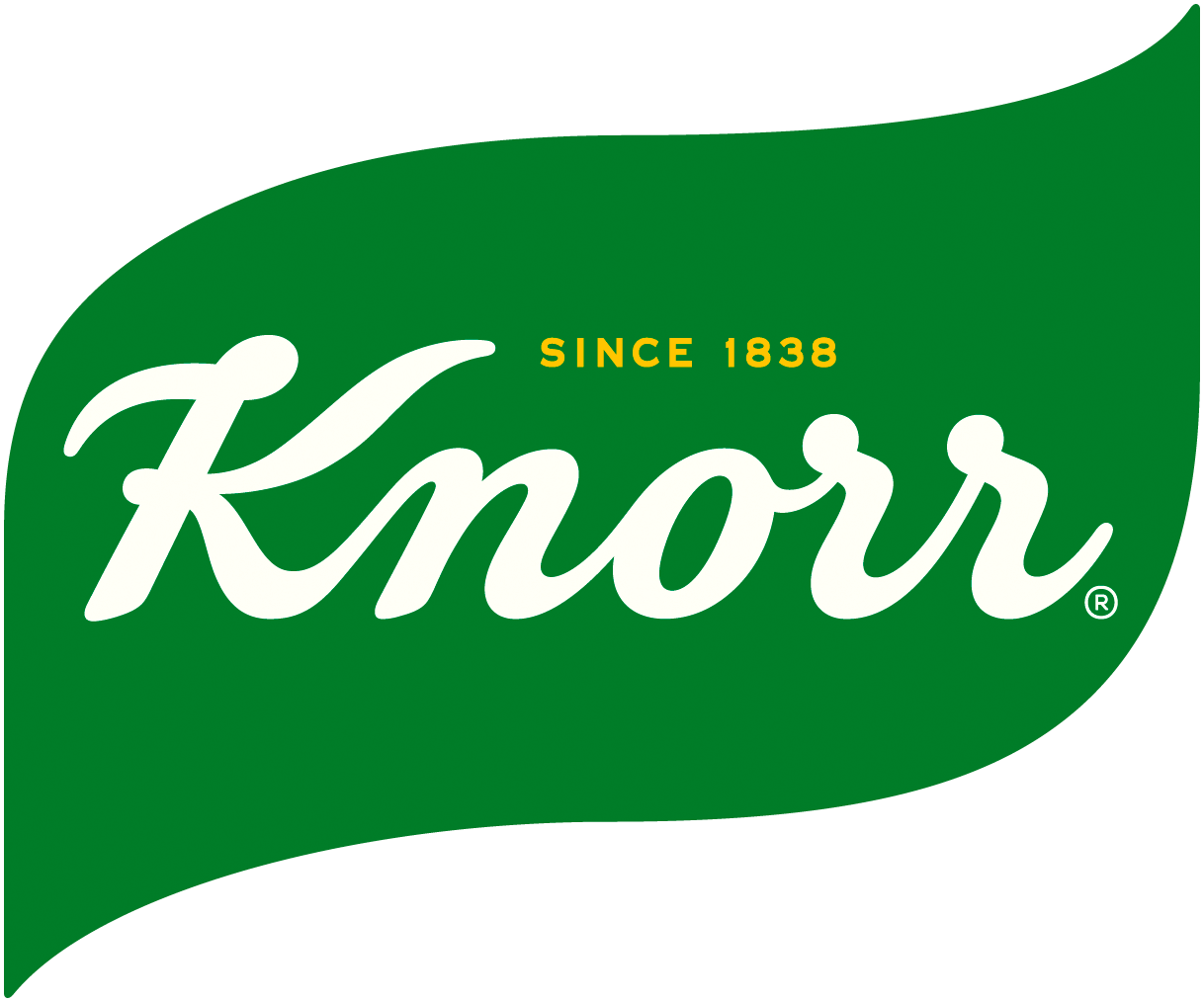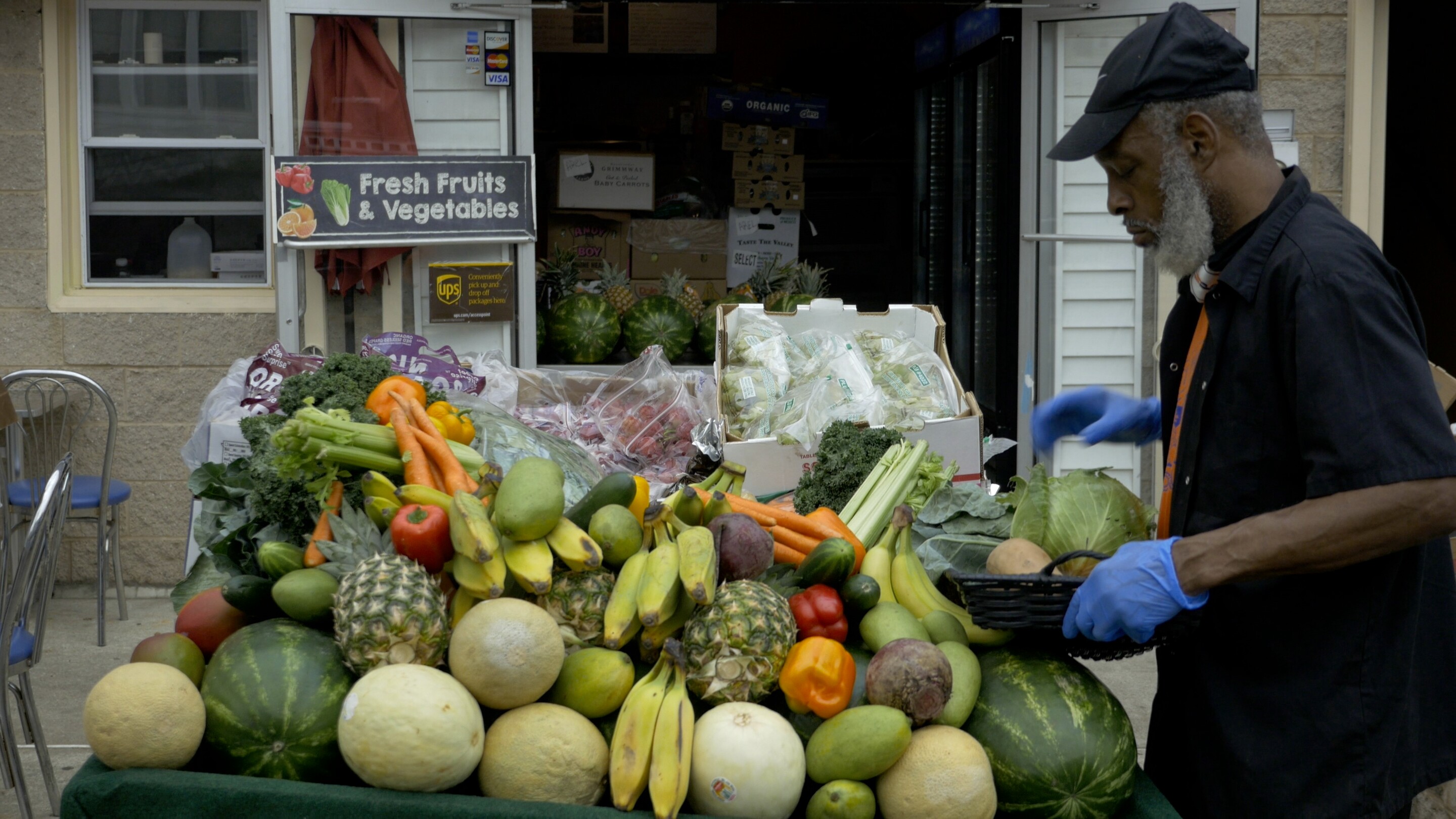Skip to:
In the past year, Arnett Woodall, owner of the renowned corner store West Phillie Produce, has given away more food than he has sold. “Way more!” he says. “On our free food days, lines stretch.” Woodall says the pandemic has made the affordability of fresh, nutritious food even harder in his neighborhood but more important than ever.
For him and countless other owners and operators of small grocers, corner stores and the like, surviving the past year as essential businesses has been a daily exercise in resiliency and determination.
Recognizing this, Knorr and The Food Trust teamed up to provide tens of thousands of dollars’ worth of flexible mini-grants to business owners like Woodall to be used at their discretion for bills, rent, payroll, personal protective equipment (PPE) and more.
“The stores operate on slim margins,” says Brian Lang, Director of Healthy Food Access at The Food Trust, an organization that has worked with neighborhoods, schools, retailers, farmers and policymakers on healthy food access since 1992. “As the pandemic really began to unfold, we learned about stores closing or struggling to cover basic costs. We saw a profound need developing in communities and developing rapidly.”
The mini-grant program is a natural extension of the work both Knorr and The Food Trust have long been committed to—making nutritional food more accessible and affordable to everyone. During the COVID-19 crisis, however, this mission became even more urgent.
“Inadequate access to healthy foods is not a new problem,” says Lang, “but the pandemic brought the reality of it into sharp focus for a lot of people.”
During COVID-19 more than 54 million people have experienced food insecurity, meaning their ability to access enough food for a healthy lifestyle is either too limited or altogether uncertain. The economic strains burdening small grocers only exacerbates the problem.
“When lockdowns happened, it was really challenging for the store,” says Woodall. “I couldn’t keep up with all the masks and sanitizer we needed. It was really costly.” But he knew he had to figure it out. “If we had closed, this community would have suffered badly.”
West Phillie Produce, like so many corner stores, is more than a business that sells groceries. It’s a pillar of the community.
“I spent 16 years running a vocational program that was part of the juvenile prison system in Pennsylvania,” says Woodall. “From their stories, I learned how to create programs that would help solve their problems.” In 2001, after that program closed, he took the $2,400 severance pay he received and started A&W (Advocacy and Work) Community Solutions, a business that creates work programs for at-risk youth. Woodall taught landscaping skills, cement work, electric, plumbing and more to teenagers, helping them increase their employability.
About a year later, local politicians asked Woodall for his advice on how to revive a location in West Philadelphia that was a known drug hotspot. His answer was simple: “Occupy the space.” So, Woodall bought the lot, drew up the blueprints and built West Phillie Produce himself with the help of the A&W youth workers.
“I planted my business right where the violence and drugs were happening, and we created a community hub model that’s done a lot of good here and is being replicated across the country,” he says.
West Phillie Produce, not only sells nutritious food in a neighborhood that would otherwise be overlooked but it also operates a community garden, which Woodall uses for cooking classes and video tutorials that he hopes might even catch the attention of Michelle Obama’s new cooking show for kids. It’s a UPS access point, has a community cleaning team and operates a town watch program that has already saved at least four lives.
“These stores are gathering places, and for many of these entrepreneurs, the stores are their dream,” says Lang. “They have a deep bond with their communities.”
That connection is at the heart of Knorr and The Food Trust’s ongoing collaboration to leverage collective resources in order to enable real impact for people who need it most. By prioritizing prevention-focused efforts to help people maintain better diets and lead healthier lives, this work is helping individuals and families be more resilient every day.
As for the past year, Woodall says there have been plenty of times when he wasn’t sure he would be able to stay in business and maintain his program that offers free produce to people on certain days of the week. “But we have to be able to supply underserved communities at a designated place they can rely on,” he says. “And just when money gets so tight and we start hurting, a truckload of donated produce shows up from a farmer in Vermont or New Jersey or New York, or an opportunity like this mini-grant comes along, and we have that ability to keep showing up for the people who need us.”
“We’ve been open 7 days a week for 12 years,” he says. “Try as it might, the pandemic didn’t change that.”


